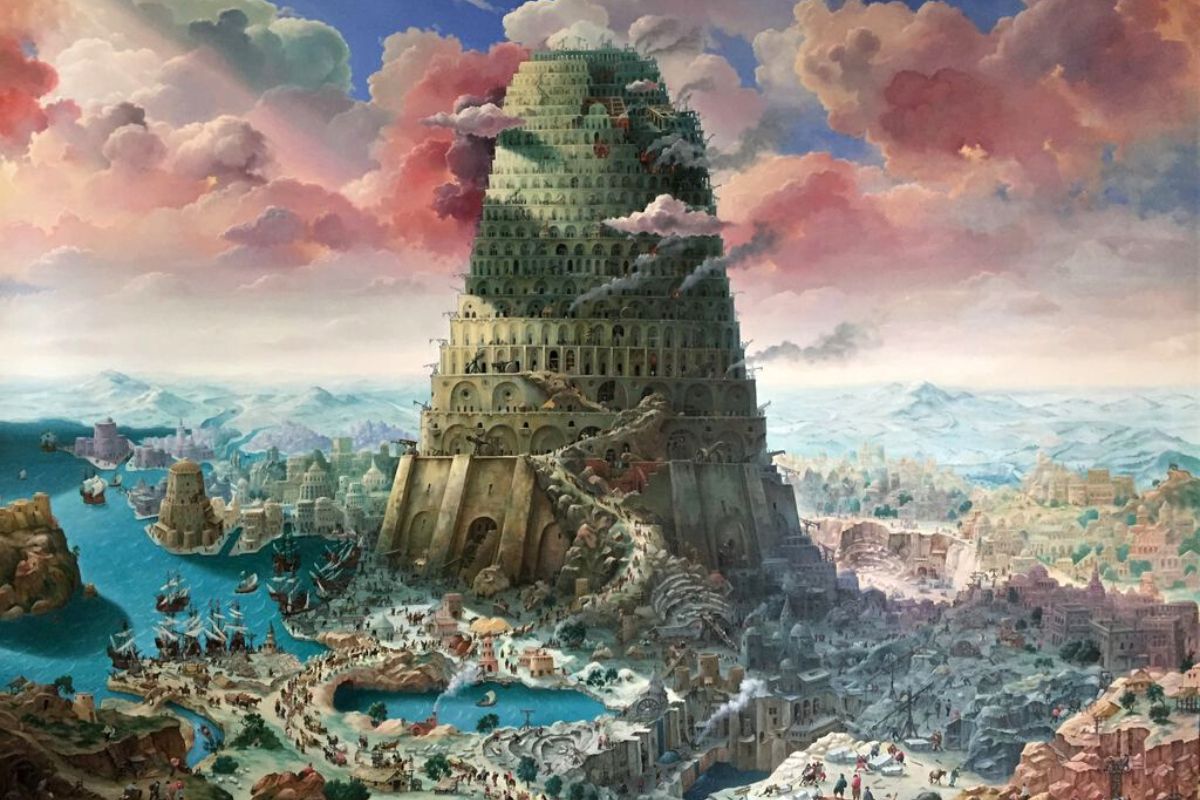
We live in a world where diversity is threatened locally and globally by those who try to push their exclusivist ideas of one race, culture, and language. However, the Bible invites us to build an inclusive community that accepts diverse identities.
This article will examine the Babel Tower Project (Gen 11:1–9) and the Day of Pentecost (Acts 2: 1-13). While the Tower of Babel story demonstrates that God recognises and values diversity; the outpouring of the Holy Spirit at the Pentecost symbolises the embrace of both diversity and unity.
I intend to draw the significance of diversity for the church by juxtaposing these two stories.
The Babel Tower Project
Genesis 11:1–9 tells the story of the Tower of Babel, which is another example of how much God cares about diversity.
In primaeval times, humans lived close to each other and spoke the same language. God wanted Noah (and his descendants) to be “fruitful and fill the earth” (Gen 9:1). But, instead of dispersing (as God had commanded), they gathered together in defiance. They built a city and a tower to make a name for themselves and prevent being scattered throughout the earth.
When the people began building the tower at Babel, God made their language hard to understand so that they couldn’t stay together. As people spread across the world, they created different cultures, races, and regional languages. So this shows that God wants people to have different cultures and ethnic backgrounds.
Two Hebrew words are used – balal (to confuse) and patsats (to scatter or spread). Therefore, the two Hebrew words balal and patsats can be interpreted as God destroying one single identity (deconstruction) and building up various nations with various linguistic and cultural identities (reconstruction).
The outpouring of the Spirit at Pentecost
The Day of Pentecost commemorates the outpouring of the Holy Spirit upon the disciples in Jerusalem. When filled with the Holy Spirit, the disciples began to speak in other languages (glossa – tongue or language) as the Spirit enabled them (Acts 2:3 and 4).
The diaspora Jews wondered: “How is it possible that each one of us can hear these Galileans speaking of the ‘mighty works of God in our own language?’” This passage shows that the Holy Spirit brings “clarity” rather than “confusion.”
Note that the languages (tongues) spoken were understandable (despite multilingualism). Moreover, the crowd was surprised to learn that the Holy Spirit can work in ways different from what they were used to.
With the coming of the Holy Spirit on Pentecost, people ‘from every nation under heaven’ can understand one another again (Acts 2:5). Interestingly, the Spirit enables them to speak in other languages rather than return to a common language.
The embrace of diversity birthed a new unity with renewed purpose. All the believers were together and had everything in common. They sold property and possessions to give to anyone who had a need. They broke bread in their homes and ate together with glad and sincere hearts, praising God (Acts 2:44-47).
The call to be an Inclusive Community
Humans are diverse in gender, ethnicity, race, class, religion, nationality, philosophy, lifestyle, and more, just like the rest of creation. We are told that the best way to accept diversity is to help bring all creation together. We often speak of unity but cannot agree on our differences.
We judge, avoid, or act awkwardly towards people different from us. Violence, ethnic cleansing, caste discrimination, and gender discrimination are solely due to self-centredness and bigotry.
The Tower of Babel helped bring diversity, but it also created divisions. People couldn’t understand each other. However, Pentecost marked the end of the confusion that had divided humanity since the Tower of Babel. The in-filling of the Holy Spirit brought people together and restored harmony.
The embrace of diversity must begin with us, the Church. The Church has to undergo a radical conversion and become a rainbow community. As Pope Francis says, as Christians from different denominations, “we should walk together, work together, and love each other” by accepting our differences and affirming our commonalities.
May the Spirit of God enable our churches and us to be role models of embracing diversity. Amen.
From Wikimedia Commons







